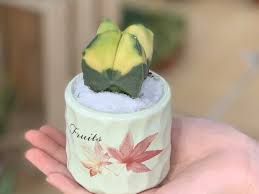Chinese Tea and Its Spiritual Significance in Culture

Tea is an integral part of Chinese culture, deeply rooted in history and tradition. For centuries, Chinese tea has not only been a refreshing beverage but also a symbol of harmony, balance, and spiritual connection. The art of tea-drinking in China is not merely about the taste or the ritual itself; it is about the spiritual and philosophical meanings it carries, often reflecting the core principles of Taoism, Confucianism, and Buddhism. In this article, we will explore the spiritual significance of Chinese tea, its place in Chinese culture, and how the act of drinking tea is intertwined with deep-rooted spiritual practices and beliefs.
1. The Historical Roots of Chinese Tea
The history of tea in China dates back over 5,000 years, making it one of the oldest beverages in the world. According to Chinese legend, Emperor Shen Nong, a mythical figure, discovered tea in 2737 BC when a tea leaf blew into a pot of boiling water. Over time, tea became a staple in Chinese society, and its cultivation spread across various regions of the country.
Tea’s popularity grew not just because of its medicinal properties but because of its spiritual and philosophical significance. Tea was often linked with meditation, inner peace, and balance, making it a perfect fit for the country’s spiritual traditions. For instance, during the Tang Dynasty (618–907), the poet Lu Tong wrote, “Tea is the drink of the gods,” reflecting the deep reverence for tea in Chinese culture.
The significance of tea continued through the centuries, reaching its peak during the Song Dynasty (960-1279), when tea ceremonies became an essential part of the court and elite culture. Tea was not only enjoyed during social gatherings but was also part of spiritual practices, creating a bridge between the physical and the metaphysical world.
2. Tea in Chinese Spiritual Practices
Chinese tea culture is deeply intertwined with spiritual practices such as Taoism, Confucianism, and Buddhism. Tea is considered a way to connect with nature, clear the mind, and cultivate inner peace. The act of preparing and drinking tea is often seen as a form of mindfulness, and it holds various symbolic meanings depending on the context.
Taoism and Tea: Harmony with Nature
Taoism, the indigenous philosophy of China, emphasizes living in harmony with nature, simplicity, and the flow of Qi (life energy). Tea, as a natural product, is a symbol of this Taoist philosophy. The preparation and drinking of tea are seen as a way to achieve balance and peace, reflecting the Taoist ideal of living in alignment with the natural world.
In Taoism, it is believed that the act of drinking tea helps clear the mind and relax the body, allowing one to be in tune with the rhythms of nature. The tea leaves are carefully selected and brewed to bring out the most subtle flavors, symbolizing the Taoist concept of “wu wei,” or effortless action. The tea ceremony, with its slow and deliberate movements, becomes a form of meditation where the participant seeks to quiet the mind and be present in the moment.
In this context, tea is not just a beverage but a way of cultivating spiritual awareness, inner tranquility, and harmony with the world around us.
Confucianism and Tea: Reverence and Respect
Confucianism, with its focus on family, social order, and respect for tradition, also plays a significant role in Chinese tea culture. In Confucian thought, tea symbolizes respect, humility, and the importance of ritual in maintaining harmony in society. The tea ceremony, in this context, is an expression of respect for others, the environment, and oneself.
Confucian tea rituals emphasize etiquette, precision, and mindfulness in every step of tea preparation. The proper way of making tea—whether it’s the right temperature of water, the amount of tea leaves, or the order in which the tea is poured—reflects a deeper understanding of respect and reverence for the act itself. The tea ceremony becomes an opportunity to cultivate virtues such as patience, humility, and gratitude, allowing individuals to reflect on their relationships with others and the world.
Tea, in Confucianism, is not just a drink for sustenance but a way of fostering positive relationships, building respect, and maintaining social harmony.
Buddhism and Tea: Meditation and Enlightenment
Tea also holds a prominent place in Buddhist practice, particularly in Zen Buddhism, where it is considered an essential element of meditation. The simplicity of tea preparation, the quiet moments spent brewing, and the mindfulness required to drink tea all contribute to a meditative experience that aligns with the Buddhist path to enlightenment.
In Zen Buddhism, tea is seen as a tool to help practitioners focus their mind, clear their thoughts, and achieve a state of “mindfulness.” Tea rituals are often conducted in silence, and the act of drinking tea becomes a form of meditation, where the practitioner is fully present, without distractions. This practice, known as “Chaji” or “the tea ceremony,” is a path to spiritual enlightenment, where each sip of tea is a moment of deep connection with the present moment.
The process of brewing tea, waiting for the tea to steep, and carefully savoring each sip is a symbolic act of patience, presence, and mindfulness. It serves as a reminder to live in the moment and cultivate inner peace, a central tenet of Buddhist teachings.
3. The Spiritual Meaning of Tea in Chinese Culture
Beyond its philosophical and religious connections, tea also carries deep spiritual meaning in Chinese culture. It is considered a symbol of purity, clarity, and the connection between the human and divine. The preparation and consumption of tea are often viewed as rituals that invite spiritual harmony, prosperity, and enlightenment.
Tea as a Symbol of Purity and Clarity
Tea is often associated with purity in Chinese culture, symbolizing the clarity of both the mind and the spirit. The act of boiling water and infusing tea leaves is seen as a purification process, both physically and spiritually. As the water turns clear and the tea leaves unfold, so too does the mind, becoming free from distractions and impurities.
Tea ceremonies, particularly those held in monasteries or temples, are seen as moments of spiritual cleansing, where participants are invited to let go of their worries and distractions and focus on the present moment. This concept of purity extends beyond just the physical properties of tea; it is about creating a space for spiritual clarity and connection.
Tea as a Gateway to Harmony
In Chinese spiritual practices, tea is often regarded as a tool for achieving harmony—not only within oneself but with the world. The balanced nature of tea—its delicate flavors and the ritualistic approach to its preparation—mirrors the balance and harmony sought after in spiritual practice.
Whether in a Taoist temple, a Confucian family gathering, or a Buddhist monastery, the act of drinking tea creates a sense of unity and oneness. Tea, in this sense, becomes a gateway to connecting with others and with the universe, reinforcing the Chinese cultural ideal of harmonious living.
Tea and Longevity
In Chinese culture, tea is also seen as a drink that promotes longevity and well-being. Many Chinese herbs used in tea are believed to have medicinal properties that can prevent illness, strengthen the body, and prolong life. Green tea, for example, is known for its antioxidant properties, while chrysanthemum tea is often used to soothe the body and mind.
Drinking tea is seen not only as a way to refresh oneself but also as a means of promoting health and vitality. In spiritual terms, the practice of drinking tea regularly is considered an act of self-care and a way to align with the natural forces that sustain life.
4. The Role of Tea in Modern Spiritual Practices
In modern Chinese society, tea continues to play a central role in both everyday life and spiritual practice. Tea-drinking remains an essential part of Chinese hospitality, and the tea ceremony is still practiced in various contexts—from social gatherings to spiritual retreats. Tea is often used in meditation practices, and its spiritual significance continues to be explored in contemporary culture.
The tea ceremony, which involves not only the preparation of tea but also a deeper engagement with the process, serves as a reminder of the importance of mindfulness and presence. In today’s fast-paced world, where many people are distracted by technology and busy schedules, the act of drinking tea is a simple yet profound way to reconnect with the present moment and find inner peace.
Moreover, with the growing interest in wellness and mindfulness around the world, Chinese tea culture has gained international recognition as a tool for enhancing well-being and spiritual health. Many people outside of China have adopted tea-drinking practices as a way to cultivate mindfulness, reduce stress, and promote holistic health.
5. Conclusion: Tea as a Spiritual Elixir
Chinese tea is far more than just a beverage. It is a spiritual practice, a symbol of harmony, and a pathway to clarity and peace. Whether it is a Taoist monk sipping tea in meditation, a Confucian scholar hosting a tea ceremony to honor guests, or a Buddhist practitioner finding enlightenment in the simple act of drinking tea, the ritual of tea holds profound spiritual meaning in Chinese culture.
As tea continues to evolve in both China and across the world, its spiritual significance remains timeless. It serves as a gentle reminder to slow down, connect with nature, and find balance in our busy lives. Through the ancient practice of tea-drinking, individuals can experience a sense of purity, harmony, and mindfulness that transcends the physical and touches the spiritual, reminding us of the deep connection between body, mind, and the natural world.

